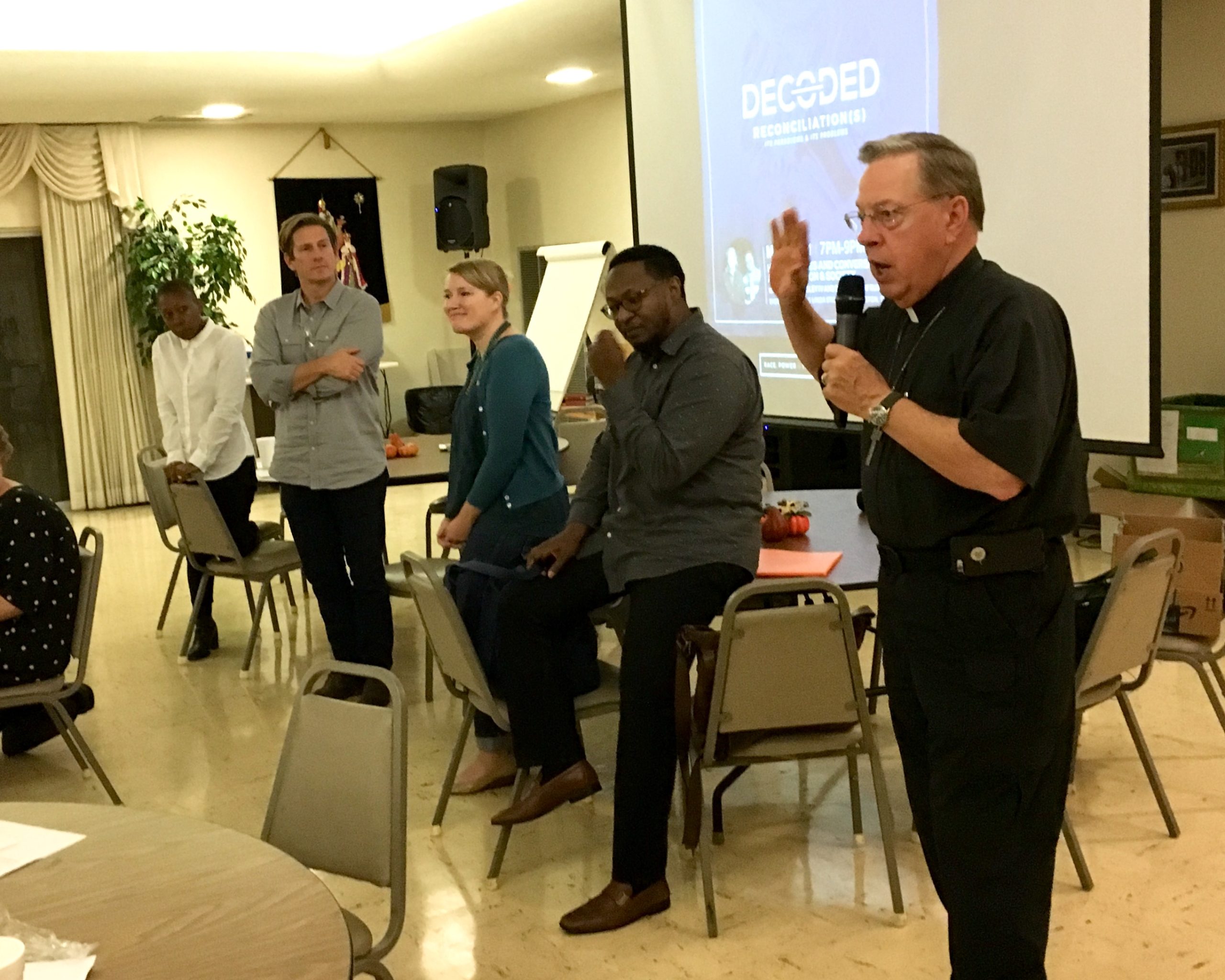While serving in the army, The Rev. John Himes, rector of Trinity Episcopal Church in Marshall, Texas had a life-saving moment. Being carried to safety off the battlefield led him through to a series of life-changing experiences, the impact of which continues to shape his life and ministry today.

Micah 6:8 tells us to “do justice, love mercy, and walk humbly with our God.” With a vision to create opportunities for dialogues on racial equity, Rev. Himes shared his story of brotherhood with a gathering of diverse folks from all corners of Marshall.
“His experience of life, as an African American man coming home after the army was completely different than my own,” Rev. Himes said. “That was what really opened my eyes to racism in our country.”
In early November, EHF and Trinity, Marhsall hosted a second community-wide dinner and conversation that reached beyond the parish hall doors.
Denise Trevino, Missioner for Intercultural Development for the Episcopal Diocese of Texas, has worked with Rev. Himes and Trinity to know their own stories and understand their own challenges and perceptions on race. In late September, the first EHF-sponsored gathering in Marshall brought a larger community group together for a screening of the feature length documentary Traces of the Trade and guided dialogue that followed.
For the November dinner, EHF invited facilitators from Project Curate in Houston to assist in the community-wide conversations on race.
With roots in mainline denominational churches, Project Curate is a social engagement collaborative that focuses on recognizing the divine in all people, regardless of race or class. Opportunities with Project Curate range from leadership and facilitator training, to house parties with rich diversity and cultural sharing. The four facilitators shared their personal journeys and led the smaller group discussions.
Over a meal, the Project Curate team facilitators posed a series of simple questions to the four groups. With this beginning of the deeper, intentional community building work, the respectful conversation was rich and challenging.
Why come together? If we do come together, what does our community look like in five years?
What happens if we don’t come together? If we don’t, what does our community look like in five years?
What are some of the challenges and opportunities of doing this work in Marshall, Texas?
Sharing personal stories and histories on both sides of racism is tough.
“It’s ok to sit with pain,” one participant told his group. “Great change comes from deep mourning, and longing.”
Another person added, “Next steps always begin around the table, with food and a shared meal, asking the Holy Spirit to be present.”
Four congregations were represented at the gathering that night and they all agreed that if they build a shared future, and personally have a stake in building a different Marshall, “they will flourish as we take care of one another.” But if they don’t, their community will continue down a path bent on keeping everything just as it had been for generations prior, and the town will not prosper.
When asked about hopes for Marshall out of this work, one participant shared, “With so much in the news about so many terrible things happening in cities across the country, I don’t know that we can promise a safe space. But together we can create a brave space.”
There is a desire for deep connection in Marshall. The next steps for this group include another gathering in early 2018 and work to build a core leadership team comprised of leaders from across Marshall. EHF will continue to offer support and facilitation in this process of building brave spaces.